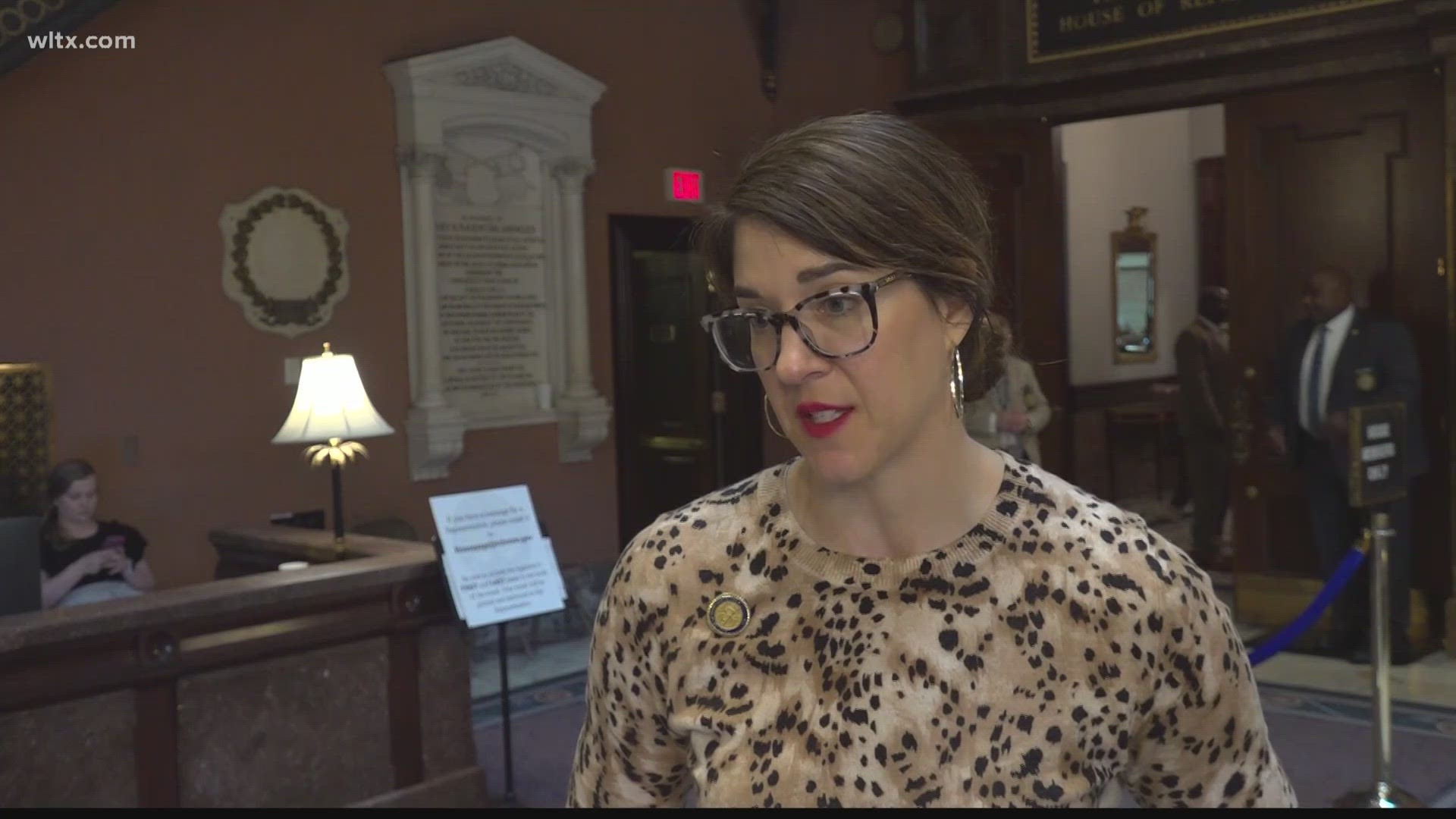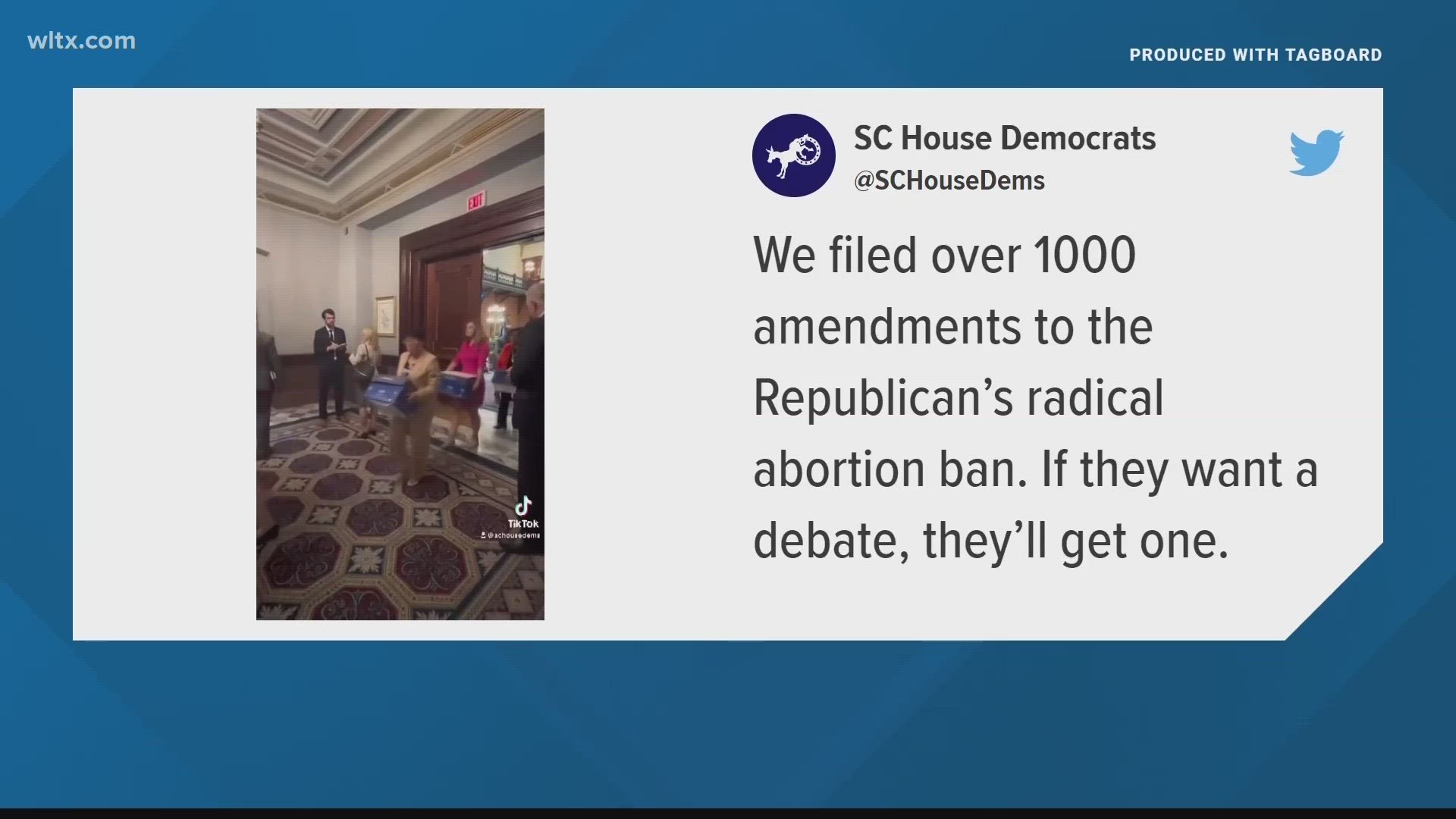COLUMBIA, S.C. — Today was supposed to have been the last day of legislative session at the State House, but Governor Henry McMaster has announced he’s calling a special session so lawmakers can pass more legislation.
Meanwhile, lawmakers in the House and Senate spent the day rushing to address key bills they wanted to pass.
Abortion, boating safety and fentanyl trafficking were all topics lawmakers wanted to discuss today.
"Quite frankly I found it interesting that at the 11th hour and 59th minute, the House leadership wants to take up abortion," Rep. Gilda Cobb-Hunter says.
It’s an issue that will be debated on Tuesday when lawmakers return for their special session.
Cobb-Hunter is opposed to new abortion bans, and was part of an effort to try and extend debate on the bill with thousands of amendments in an effort to defeat it.
Today, the House majority voted to invoke what’s known as cloture, which caps the amount of debate on an issue.
This means lawmakers will have just three minutes to speak in favor of or against the amended version of the Senate’s six week abortion ban.
"Something this important, obviously because they keep talking about it, one would think that you would give more than three minutes for these kinds of conversations," Cobb-Hunter shares.
Rep. John McCravey, who supports a ban on abortion, says the time limit is warranted on a bill that’s been debated at length, especially considering the 1,000+ amendments.
"People know how they’re going to vote and with that many amendments, everybody had the opportunity to day anything they want to, they can talk on the bill, so it’s not really going to stop people talking on the bill and being able to debate the bill," McCravey says.
Rep. Heather Bauer orchestrated the five female Democratic legislators who carried the printed amendments into the House chambers, which has gotten attention on social media.
"I definitely did not expect it to go viral, but I did know that it was going to send a very clear message, a very powerful message that we are united," Bauer shares. "The Democratic women in particular are united and our caucus is united to fight against this extreme abortion ban."
McCravey, however, says he hopes the legislative bodies can find a middle ground.
"We’ve had some negotiations, that’s not a secret," McCravey explains. "And I think that the Senate is going to agree on this language and we’re very optimistic that we can get something passed."
In addition to abortion, lawmakers also debated boating safety, which would require the Department of Natural Resources implement requirements that boaters would need to meet in order to receive a boating safety certificate.
On the Senate side, the group debated a bill that would combine what Senator Brad Hutto says are "two priorities that we've been trying to accomplish this session."
"One is to make trafficking fentanyl a crime. Right now we have laws against distribution of fentanyl but not trafficking of fentanyl. So that's been a priority for us," Hutto says. "Another priority that almost all are in agreement is we don't want people who have been convicted of crimes to have guns."
Senators argued with Hutto that the two were not related, weakening the bill as a whole. Ultimately, the Senate moved the fentanyl bill forward without the firearm provision, although they could still bring it back up during the special session.
One bill that got approval from both chamber deals with restructuring the Department of Health and Environmental Control (DHEC).
Senator Tom Davis says a bill regarding the department is on its way to the governor's desk.
Davis says in summer 2024, DHEC will be broken into two agencies: the Department of Public Health and the Department of Environmental Services.
"The Department of Administration is charged with looking at that holistically and then coming back to the general assembly by April 1 of 2024, so we're talking about 11 months time, coming back to us with recommendations as to not only how the healthcare aspects of DHEC should be reorganized, but the other public health delivery agencies," Davis explains, using DAODAS as an example. "Whether they should be consolidated, merged, realigned. So we're taking a holistic look at public health for really the first time that I can remember."


